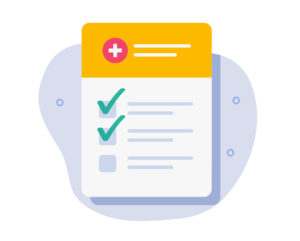If you run a lab, you already know billing isn’t the fun part. It’s complicated, time-consuming, and full of opportunities for things to go wrong. The right billing software for labs changes that story. It automates the tedious stuff, catches errors before claims go out, and helps you get paid faster.
But here’s the tricky part: Not all laboratory billing software is created equal. Independent labs don’t need the same tools as hospital labs. Pricing models vary. And the wrong choice can tie up your staff time and delay payments instead of fixing problems.
So how do you choose? Let’s break it down.
What to Look for in Lab Billing Software
 Every lab billing software vendor will promise efficiency, but the best systems back that up with features that make a difference in the real world. When comparing lab billing software, keep an eye out for the likes of:
Every lab billing software vendor will promise efficiency, but the best systems back that up with features that make a difference in the real world. When comparing lab billing software, keep an eye out for the likes of:
- Automation and error checking to cut down on denials
- Real-time eligibility verification so you’re not testing without coverage
- Analytics and reporting dashboards to see exactly what’s happening with payers
- Built-in compliance safeguards for coding and documentation rules
- Integration with LIS and EHR systems to stop double entry in its tracks
- Patient-friendly billing tools like online payments and clear statements
One more thing worth considering: flexibility. The best laboratory billing software gives you the option to outsource your billing when you need to, without forcing you to switch platforms.
Pricing Models for Laboratory Billing Software
Let’s talk cost. Most systems fall into one of two categories:
- Subscription or SaaS pricing: predictable monthly fees tied to user count or claims volume. Smaller independent labs often start here.
- Percentage of collections: common when software is paired with outsourced billing services. Fees usually land in the 3–8% range depending on complexity and volume.
You might also see one-time onboarding or training charges.
Independent labs often prefer subscription pricing for predictability, while hospital labs gravitate toward enterprise systems that justify higher investments with deep integrations.
Independent Labs: Keeping It Lean
Independent labs thrive on efficiency. With smaller teams, the right billing software should be simple to learn, affordable to run, and powerful enough to prevent costly errors. Quick setup and minimal IT support are big advantages.
Take a small pathology lab as an example. Staff may be juggling patient intake, test processing, and billing all at once. A laboratory billing software platform with automated claim scrubbing and real-time eligibility verification ensures staff aren’t chasing down unpaid claims weeks later. And when volumes increase, being able to layer in outsourced billing services through the same vendor keeps operations smooth without hiring a bigger back-office team.
Hospital Labs: Managing the Big Picture
 Hospital-affiliated labs have more moving parts. Their billing needs to sync with enterprise EHRs, multiple departments, and shared revenue cycle teams. In this world, laboratory billing software must be scalable, customizable, and enterprise-grade secure.
Hospital-affiliated labs have more moving parts. Their billing needs to sync with enterprise EHRs, multiple departments, and shared revenue cycle teams. In this world, laboratory billing software must be scalable, customizable, and enterprise-grade secure.
Imagine a hospital lab that processes thousands of tests a week across multiple specialties. The billing system has to handle large volumes without bottlenecks, provide detailed reporting across facilities, and integrate seamlessly with the hospital’s revenue cycle. A standalone lab billing software package may not cut it, but an enterprise solution that connects LIS, EHR, and billing can. For these labs, the right billing system is less about saving on subscription fees and more about managing complexity without slowing down.
Compliance and Laboratory Billing Software
No lab can afford compliance missteps. Payers are tightening reimbursement requirements, and audits are increasingly common. That’s why compliance tools inside billing software for labs aren’t optional. They’re essential.
Strong systems include built-in coding checks that prevent unbillable claims, HIPAA-compliant security measures, and audit logs that track who touched what data and when. For hospital labs, that level of accountability supports enterprise compliance standards. For independent labs, it provides peace of mind that a small staff won’t overlook costly mistakes.
Patient Billing Trends: Why They Matter for Labs
Another factor to consider is how patient billing is changing. High-deductible health plans mean patients are responsible for a larger share of their lab bills. If your laboratory billing software doesn’t make it easy for patients to understand and pay their portion, you’re going to be leaving money on the table.
The best systems make billing more patient-friendly with:
- Clear, easy-to-read statements
- Online bill pay portals
- Options for recurring payments or payment plans
For independent labs, this can make the difference between collecting most balances and writing them off. For hospital labs, patient-friendly billing supports the hospital’s overall patient satisfaction and revenue cycle goals.
Why the Right Lab Billing Software Pays Off
Investing in strong billing software for labs isn’t just about sending cleaner claims. The payoff shows up across the entire operation: denials drop because errors are caught early, cash flow improves with faster payments, staff spend less time on data entry, and patients get clearer bills.
And with robust reporting, you gain insight that helps you forecast revenue, track payer behavior, and make smarter strategic calls. Over time, these improvements compound, turning billing from a bottleneck into a competitive advantage.
Why Laboratory Expertise Matters
Software is only half the equation. How you implement it, train your team, and adjust workflows will determine whether it delivers real results. That’s where an experienced partner makes a difference.
PGM has been helping laboratories of all shapes and sizes for decades, combining laboratory billing software with outsourced billing services. Independent labs benefit from lean, affordable setups with room to grow. Hospital labs get scalable, integrated solutions designed for complexity. Either way, you get more than software. You get a partner who understands the realities of lab billing.
Ready to Simplify Your Lab Billing?
Billing may never be glamorous, but with the right lab billing software it doesn’t have to be painful. If you’re exploring options, this is the moment to talk with a partner who knows the landscape and can point you toward the right solution.
PGM’s team is ready to show you how our laboratory billing software and services can help your lab get paid faster, stay compliant, and run more smoothly. Reach out to us today!